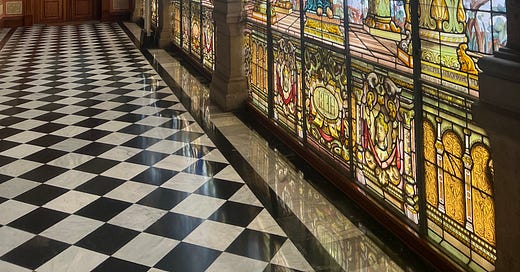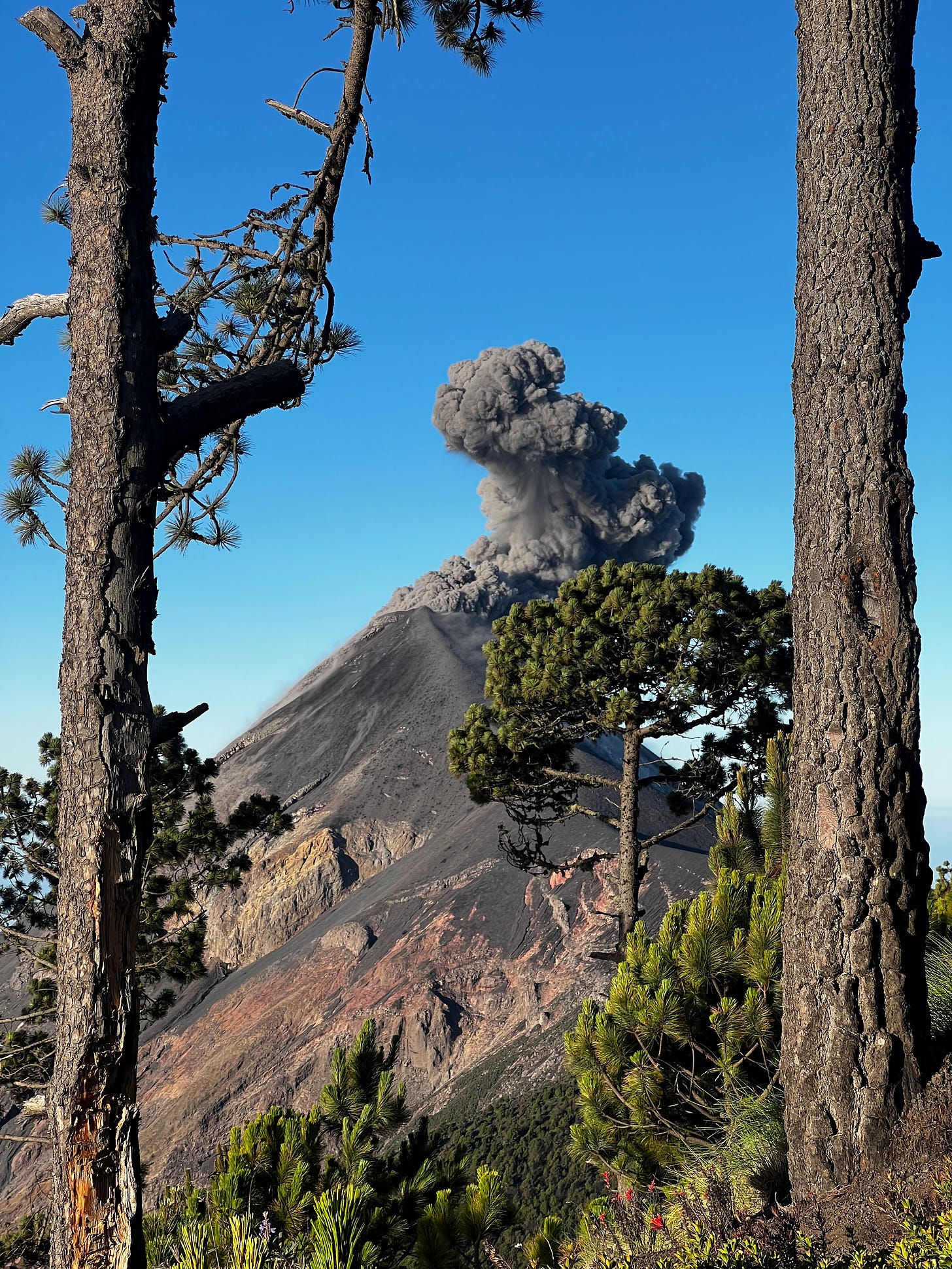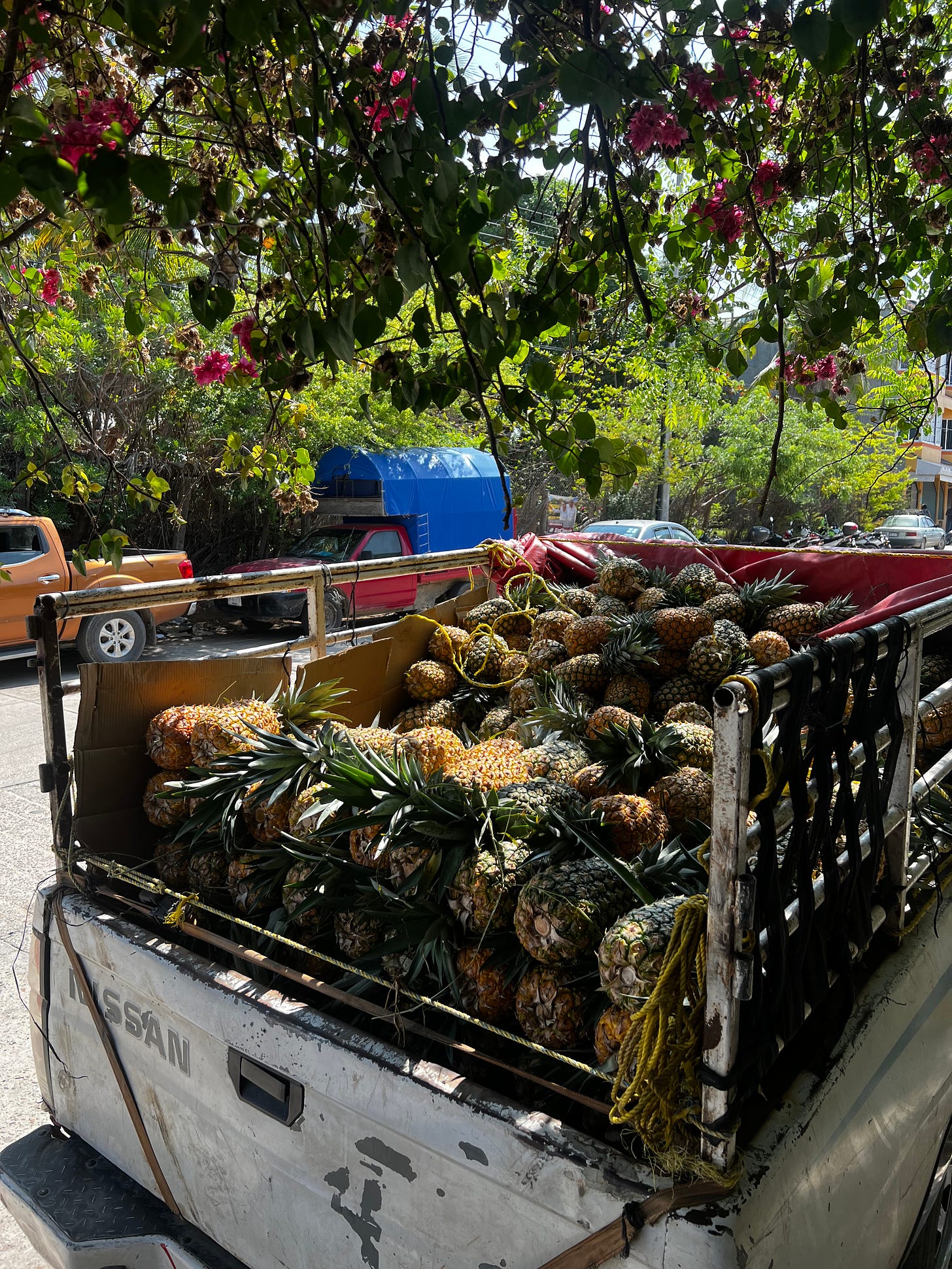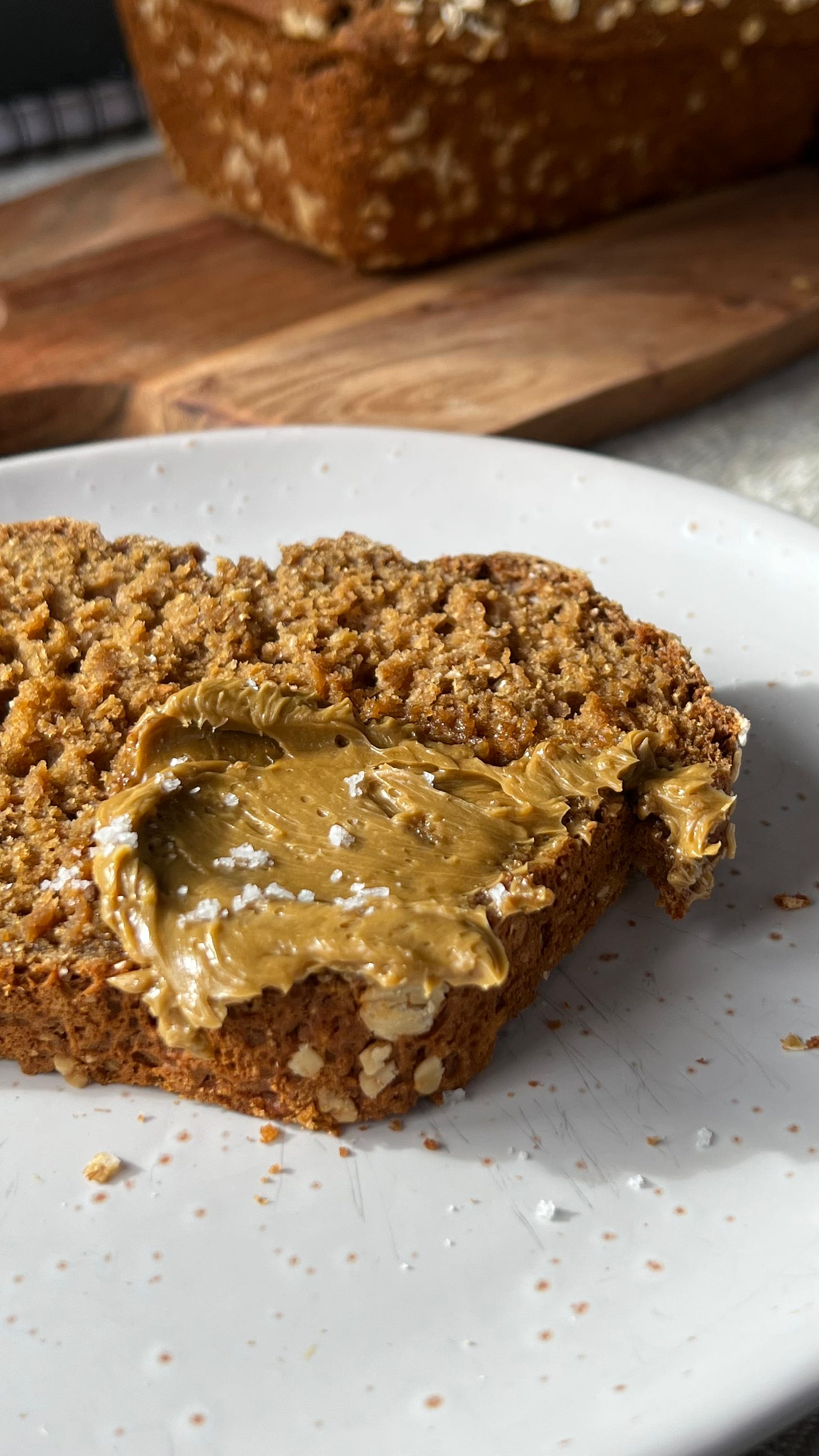What I’m reading: Philippa Perry’s book “The Book You Want Everyone You Love* To Read *(and maybe a few you don’t)”. I like interspersing my reading rotation with some self-help/psychotherapy books, and I’m a big fan of Philippa Perry’s
What I’m listening to: this podcast about stouts and porters on BBC Radio 4’s Food Programme. It features the man behind the Instagram accounts shitlondonguinness and beautifulpints, both of which I have been a fan of for a while
What I’m eating: a pie (chicken) and some pastries (macadamia twice-baked and miso eggplant) from Beabea’s
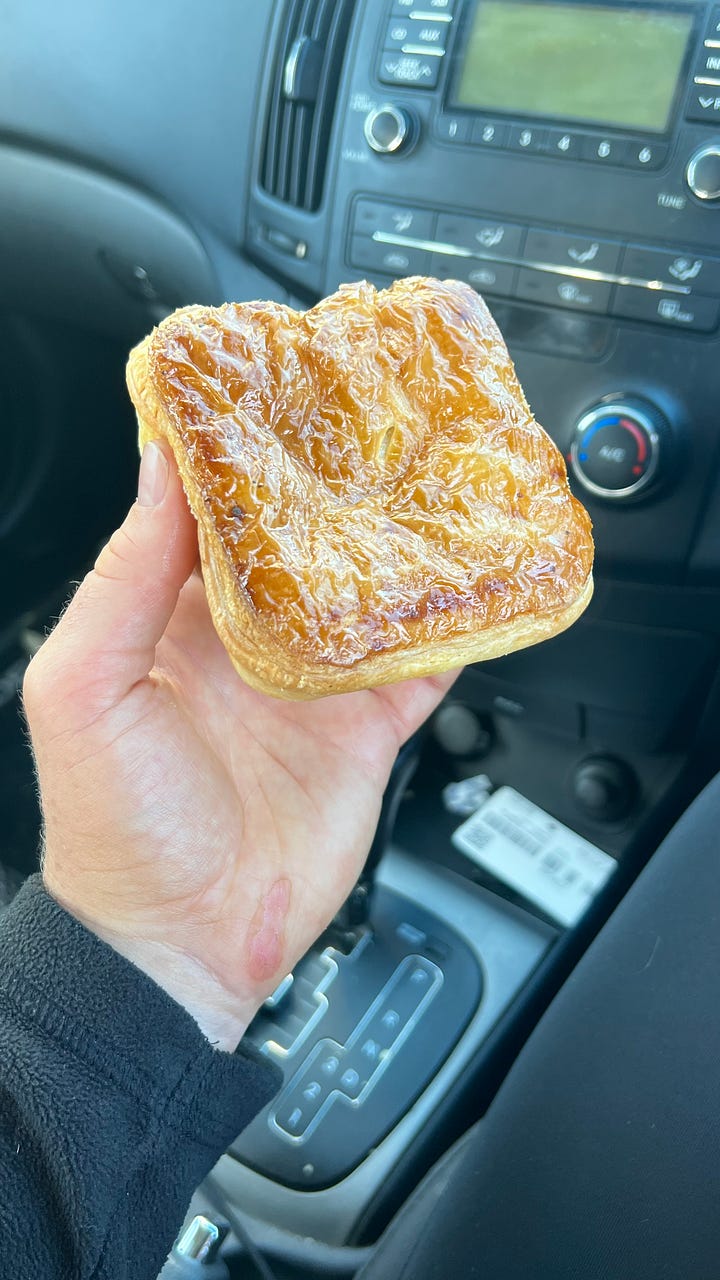

I’ve been lucky enough to travel a lot in the past year, and have done most of it on my own. Recently I’ve had a few people ask for tips for solo travelling, so I thought I’d write them here, in the hopes that they’re useful to somebody - or perhaps inspire you to go travelling on your own (whether it’s a weekend trip or a big backpacking expedition!).
If you’re waiting for a sign to book that solo trip - here it is! Right here. I’m giving you the sign!
This is the backpack I used, and I really liked it. It was probably on the smaller side, so was a struggle to pack sometimes, but it fit in the carry-on compartments which saved me a lot of time and money. I highly recommend getting some packing cubes - they will make your life infinitely neater and more practical.
Budget
I’m starting off with perhaps the least fun category, but an essential one nonetheless. My main tip here is to ensure you have a sufficient (and in fact, substantial) safety net. You want to be sure to have a fund (that ideally you won’t have to touch) in case of emergencies, medical or otherwise. I kept mine in a savings account with my main (Irish) bank that I could access through mobile banking - so it was immediately available should I need it, but not in my current account. You never know what’s going to happen, and it’s best to be prepared for any eventuality. The safety net should be big enough to fly you home and pay for a couple of nights accommodation, plus a little extra. I recommend around €1,500, but of course feel free to calculate this according to your own requirements. The safety net is, of course, essential in its own right, but will also give you some peace of mind that you’re covered in case of emergencies (which, in my experience, is really important for an anxious mind).
In terms of the rest of your budget, I recommend calculating a daily allowance which includes food, accommodation and activities. This will very much depend on where you’re going, but you can get a rough idea by searching hostel rates online. Somewhere like Europe will, of course, cost more than South East Asia or Central/South America. For my Mexico/Central America trip, I budgeted €35 per day total, including accommodation, food and activities, plus an extra €100 per week for extras - which, rounding up, comes to €350 per week. It’s obviously good to have a bit of wiggle room here, as sometimes you’ll end up spending less (when hostels are cheaper and you’re cooking for yourself or eating mainly street food), but you’ll also end up spending more sometimes (on more expensive hostels, nights out, eating out etc.). The extras could be medicine or toiletries, or an activity like visiting a cenote or a museum.
On top of that, you’ll need to factor in travel expenses, which are considerable - but should be easy enough to calculate roughly in advance. You’ll probably have booked some of your flights in advance, plus there’ll be bus/boat/train trips, taxis, maybe some shorter flights etc. I had my bigger flights booked in advance to give me a structure for planning my trip, and left the buses and shorter travel days until later. I kept my travel expenses in the same savings account as my emergency fund, so I wasn’t tempted to dip into them.
Safety
Unfortunately, there is absolutely no way to guarantee your safety when you’re solo travelling. If that sounds pessimistic, I’m sorry - but if it helps, there’s also no way to guarantee your safety if you don’t solo travel. Scary things happen in Dublin as well as in Mexico City. All I can say is that you should take all the necessary precautions (below), but please don’t let your fears stop you from doing the trip.
(I’m reminded here of a quote from the brilliant Baz Luhrmann film, Strictly Ballroom, that our English teacher in school, Mr. Hodgins used to shout at us regularly: a life lived in fear is a life half-lived. If you haven’t seen it, I highly recommend.)
If you’re planning on doing a Workaway or Worldpackers stint (where you volunteer in a farm or hostel etc. in return for bed and board), choose a place that has lots of good reviews. Some of the work placements are really rural, and even if it seems like a great opportunity, it’s best to pick a place that multiple other people have endorsed.
Try not to book flights, buses or trains that arrive into cities during the night/early in the morning. It’s a tricky one because they’re often the cheapest ones (especially when it comes to night buses), but arriving in a train or bus station alone in the middle of the night is not the smartest move, especially as you then have to navigate your way to your accommodation, which might not even be open/let you check in yet.
Get an e-sim, or a local sim card as soon as you can. There’s a few different e-sim options that you can buy global sim cards from, usually through an app - which will work in whatever country you’re in. They tend to be on the pricier side, but they’re handy to ensure that you have access to the internet and Google Maps wherever you are. If you’re staying put in a country for a bit longer, I recommend going and buying a physical sim card, which are usually quite cheap.
Use the “extras” part of your budget to make safer choices, when it matters. It’s all well and good to scrimp where you can when it comes to food and activities and the likes - but sometimes, you absolutely should take the Uber or choose the nicer hostel or perhaps move hostel altogether.
Trust your instincts! If you’re getting a bad vibe from somebody, you (usually) have no obligation to keep talking to them. Don’t be afraid to leave situations that feel uncomfortable (or unsafe) - sometimes it’s okay to be rude.
My mum always said that if you feel unsafe, trust the lady with the children, and I still think that this holds true for the most part. If you need help or directions, try and find a woman with kids, and stay near larger groups if possible.
Talk to hostel staff about precautions that you should take, especially at night time. They’ll be able to tell you which areas you should avoid and whether you should travel as a group etc.
Get a bum bag that you can wear inside your clothing for your valuables (passport, bank cards etc.). I used to wear one like this inside my clothes with my really valuable stuff, and then another one like this for suncream, phone, sunglasses etc. I also used to keep a spare bank card (it was a Revolut one, so there was only ever a small amount of money in there) in a completely separate part of my backpack, as a back-up
Insurance
I don’t have much specific advice on travel insurance, except that you should get it. Do some research online - most of the brokers will let you put in your travel plans and give you a quote instantly. I ended up going with AIG insurance. Much like the safety net fund above, this is mainly for your peace of mind, as ideally you won’t have to use it.
Hostel tips and etiquette
TBH, if you’re reading this, you probably don’t need to be lectured on hostel etiquette, but this might give you an idea of what to expect, so you don’t lose your mind and end up shouting at the German girl in the bunk below you (I would never)
I booked the majority of my hostels via Hostelworld, as I found it the most user-friendly. You can read reviews etc. and see the various facilities pretty easily. By the end of my trip, I was putting filters on to ensure that I got a hostel with a personal plug socket, a personal bedside lamp and a curtain around the bed. Other things you might want to take into consideration are distance from the bus station/nightlife/tourist attractions, whether there is a pool or not, how many people you’re sharing a bathroom with etc.
During normal sleeping hours, don’t go turning the lights on in the dorm. Even if you arrive at a hostel late, and it’s a pain to find your toothbrush in the dark, it’s not cool to wake up whoever might be asleep (and might have an early morning the next day, and might decide to take revenge). That said, if there’s people asleep during the day, I think it’s okay to move around, have the lights on, talk (quietly) etc.
Don’t hang wet towels on somebody else’s bed!
I recommend having ear plugs and an eye mask at all times
I also recommend investing in an extension cord for times when you’re on the top bunk and the plug socket is on the floor
Be considerate when it comes to the air conditioning/fans. I witnessed some absolutely savage behaviour (a certain French man getting up in the middle of the night and reconfiguring every single fan in the room so that they pointed at his bed and his bed only), while there are also people who love turning the air conditioning all the way down (or all the way up) without consulting with anybody else. It’s hard to navigate this one, but it’s usually a good idea to check with at least one person before you go changing the settings drastically.
Making friends
If you’re nervous about making new friends while travelling alone, honestly - so was I. I probably still will be for my next trip! I’m an introvert (albeit a fairly sociable one), and definitely wouldn’t be comfortable approaching a large group of people on my own (the thought actually gives me goosebumps, and not in a good way). Hostels can be intimidating places, and there’s often cliques and little crews that dominate the common areas. The good news is (and bear with me here) that you are going to meet so many people, and some of them won’t even be nice! I mean, most of them will, and if they’re not nice, they’re interesting, and if they’re not nice or interesting, you’ll have a funny story to tell later on. You’ll have the same conversation with different people multiple times a day, and you’ll get better at figuring people out sooner rather than later.
The best part about solo travelling is the flexibility of it. If you end up getting on really well with somebody, there is absolutely nothing stopping you from travelling the next few stops together. If you don’t like a person or a place or a thing, you can usually quite literally walk away! If you get a new recommendation, or an anti-recommendation (as in, if somebody says to definitely not go somewhere), you can change your plans. If you feel like you need some space, you can book a private room in a hostel, or if your budget allows, maybe even a hotel. You can have tacos for breakfast, lunch and dinner, and nobody will stop you (in fact, I encourage it).
If you’re going solo travelling (or travelling at all, for that matter), and have specific questions on anywhere I’ve been, please shoot me a message on Instagram!
recipe: Guinness bread
This is a lovely, hearty, wholesome loaf that comes together in minutes. If you want to make the treacle butter too, I didn’t make a note of quantities, but I have faith in you - just beat softened butter in a bowl (it’ll be quicker with an electric whisk), and add treacle to taste. Serve on the bread with a generous sprinkle of Maldon.
Keep reading with a 7-day free trial
Subscribe to Tastebuds to keep reading this post and get 7 days of free access to the full post archives.


